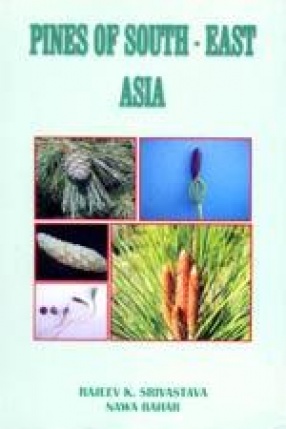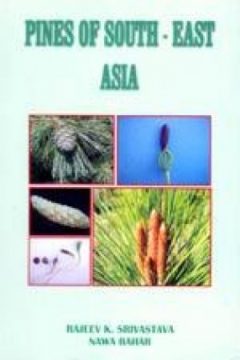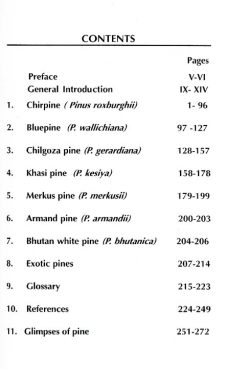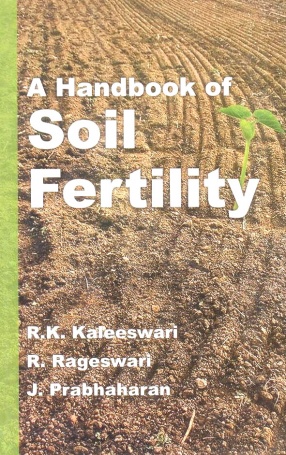Pines are unique species of high economic, ecological, cultural and spiritual significance. They provide a multitude of benefits to human beings, including highly nutritious nut like seeds of Chilgoza and durable fragrant wood, as well as other products. At the same time pine forests often have been and continue to be abused and managed for timber production, which destroys the pine production. The growth of world demand for pine nuts and stable high price call for better management of existing pine resources and for their cultivation within and outside native range. Pine was first investigated by Hippocrates, the father of Western medicine, for its benefits to the respiratory system. During the 1800’s, tar from the pine used in many medicines, especially for skin diseases like eczema and psoriasis. The needles were made into stuffing called pine wool that was thought to repel lice, fleas and other pests. Pine are the pioneer species over much of their natural range and are active colonizers of degraded sites particularly the drier south facing slope. The species have thus great promise in afforestation programmes in their natural habitats. Much of the degraded areas in their habitat are deficient in organic matter, water holding capacity, nutrient availability and micro/macro fauna and are thus lacking in almost all the desirable physical, chemical and biological characteristics necessary to support species other than pines, which also do not always respond favourably to afforestation efforts. Increasing survival of out planted seedlings, reduction in cost of cost of raising nursery and plantations, increasing productivity etc. are some of the major concern of foresters, scientists and planners today. Pines being an important component of the Himalayan ecosystem, cost effective techniques of afforestation and use of improved site matched planting material assume significance in the endeavours undertaken in the ecological rehabilitation of Himalayan region. Main species of pines found are Chir pine, Blue pine, Chilgoza pine and Khasi pine in India.
Pines of South-East Asia
Add to favorites
Contents
$80.10
$89.00
In stock
Free & Quick Delivery Worldwide
All orders amounting to US$ 50 or more qualify for Free Delivery Worldwide. For orders less than US$ 50, we offer Standard Delivery at $14 per book.
ABOUT THE AUTHOR Nawa Bahar
Dr. Nawa Bahar, M.Sc. Ph.D. (Botany) working at the Forest tree seed Laboratory, Silviculture Division, Forest research Institute (Indian) Council of Forestry research & Education), P.O. New Forest, Dehra-Dun (Uttarakhand). Prior to Joining this Institute, he had served at Conifers Research centre (Presently Himalayan Forest research Institute) Shimla. He is engaged in teaching and research in forestry for more than sixteen years. he had published more than forty research papers in different journals of national and international repute on various aspects of forestry. His work concentrates mostly on coniferous forests, cold desert afforestation, seeds and provenances research in Western Himalayan region of India. He has been awarded the Brandis Prize for his research work in the field of forestry.
ABOUT THE AUTHOR Rajeev K. Srivastava
Dr. Rajeev K. Srivastava is member of Indian Forest Service of 1985 batch of Tamil Nadu Cadre. He is Ph.D. in Forestry. He has experience of over 22 years in the field of conservation, protection and raising forestry species of various types especially, Shola grassland, Mangroves and Himalayan Ecosystems at various capacities as DFO and CF. he served in Indian Council of Forestry research and Education, Dehra-Dun as Assistant Director General. He authored the World Bank completion report of Free Project. He joined as head, Silviculture Division at Forest research Institute, Dehra-Dun and Editor of the prestigious journal “Indian Forester†since 2003. He has published more than 50 National and International papers and has been awarded Brandis, Chaturvedi and I.C.F.R.E awards of excellence. He has developed Forest Fire fighting tools. He coordinated the USDA pine project and visited to U.S.A., Germany and Netherlands for studies on pines. He was Course Director of Seed, Nursery, Plantation Technologies and MFP Courses of Forest research Institute. He is member of RAC and management Committee of Forest Research Institute, Dehradun. He is also member of Bio-fuel and Disaster management committee of Uttarakhand.
reviews
0 in total
Review by Anonymous
Be the first to review “Pines of South-East Asia” Cancel reply
You must be logged in to post a review.
Bibliographic information
Title
Pines of South-East Asia
Author
Edition
1st ed.
Publisher
ISBN
9788170893394
Length
xiv+272p., Figures; Tables; Glossary; References; Plates; 25cm.
Subjects







There are no reviews yet.